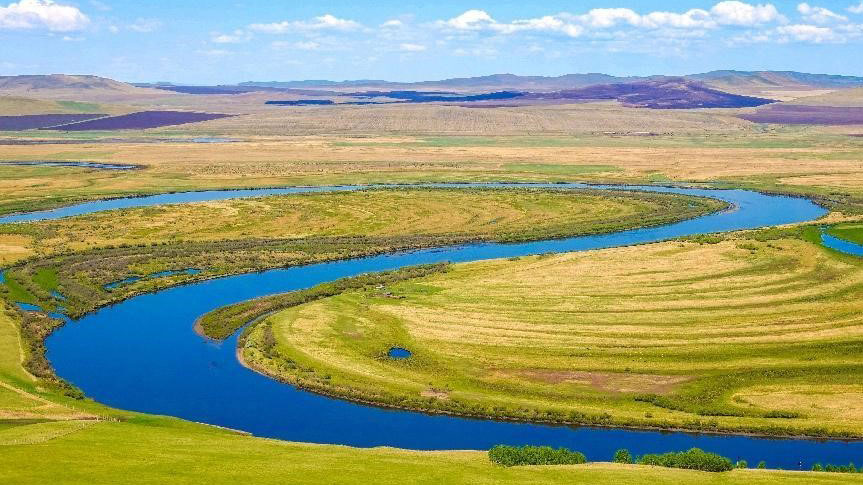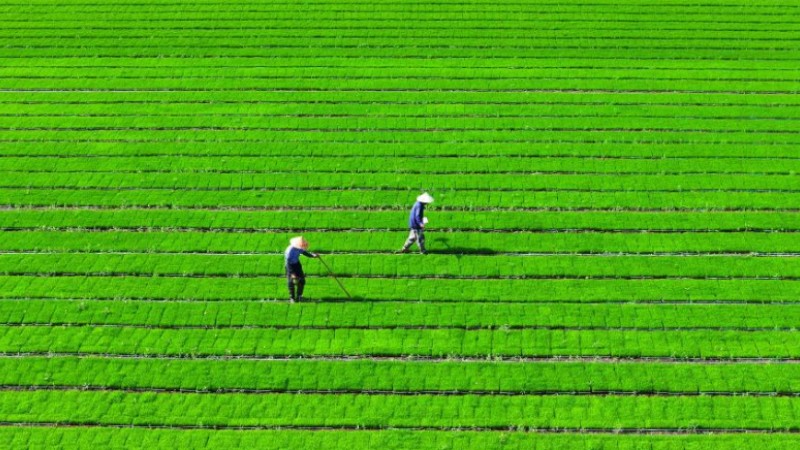The Kakhovka dam collapse causes humanitarian and environmental costs
BEIJING, June 8 (Xinhua) -- The recent attack on the Kakhovka hydroelectric power plant in Ukraine has caused a catastrophic dam burst, which holds back the country's largest reservoir, releasing a torrent of contaminated water into cities and towns downstream.
As Russia and Ukraine have been trading accusations over the attack, the dam collapse continues to inflict humanitarian, environmental and agricultural costs upon the flooded zone, with a potential impact that is likely to ripple across the world in the years to come.
HUMANITARIAN COST
A humanitarian crisis triggered by the disaster is already playing out. As water gushes out, more than 4,000 people had been evacuated from the flooded areas in the Kherson region, acting governor of the Kherson region Vladimir Saldo said on Wednesday.
Statements from the Ukrainian side said that "about 80 settlements in the flood zone" and more than 40,000 people have been affected, as homes and infrastructure have been destroyed.
Media reported that the flood is disturbing mines laid earlier, posing further dangers to the displaced people and those coming to help.
The United Nations has warned of "grave and far-reaching consequences" following the dam breach, as representatives from various UN agencies in Ukraine were in Kherson to assess the impact and coordinate the humanitarian response.
"They tell us that the disaster will likely get worse ... as water levels are still rising, and more villages and towns are being flooded. This will impact people's access to essential services and seriously raise health risks," said Stephane Dujarric, UN Secretary-General Antonio Guterres's spokesman.
Access to water is another concern. Hundreds of thousands of people depend on the reservoir formed by the dam for drinking water, and the levels are dropping rapidly.
ENVIRONMENTAL DISASTER
Experts have been warning of the environmental cost of the dam failure, calling it an "ecological catastrophe."
Damaged equipment at the power plant could be leaking oil. According to the Ukrainian government, the river has been contaminated with 150 tonnes of industrial lubricant, and another 300 tonnes were at risk of leaking.
Environmentalists have said that pollutants from industries clustered along the banks of the Dnieper River, downstream from the dam, can be swept into the Black Sea, affecting the marine ecosystem.
"There are catastrophic consequences for the environment," Ukrainian Minister of Environmental Protection and Natural Resources Ruslan Strilets told reporters Tuesday.
Video clips posted online showed that large quantities of beached fish lie on the depleted shoreline as the water level falls.
The summer temperatures worsen the health risks from the dam breach, with living matter breaking down faster and further contaminating water supplies, said Yevhen Korzhov, a hydrologist from Kherson State Agrarian and Economic University.
"In the coming months, we will observe the deterioration of the quality of drinking water and the infection of fish, birds, and aquatic animals," Korzhov told the media.
AGRICULTURAL CONSEQUENCE
The incident's rippling effect has been felt worldwide as Ukraine has long been the leading supplier of corn and wheat in the global market. Water from the Kakhovka reservoir irrigated the farming region of southern Ukraine, which produces much of the country's significant agricultural exports.
After the dam's breach, agricultural land in the region has been washed away. Agricultural fallout could far surpass the immediate destruction caused by flooding and is likely to be felt worldwide for years.
The Kakhovka disaster will stop the water supplies to about 30 irrigation systems, which irrigated about 1 million hectares of agricultural fields, according to Oleksii Kushch, an economist at "United Ukraine," a think-tank.
"Ukraine may lose 10-15 percent of its agricultural potential due to indirect or direct influence (of the Kakhovka incident). The damage is estimated to reach millions of tons of agricultural products," Kushch told Xinhua.
The Ukrainian government has warned that the country's grain fields "may turn into deserts as early as next year," and damage to the reservoir could affect global food supplies.
Due to fears that the dam attack could disrupt Ukraine's exports of agricultural products, global prices for wheat and corn have soared since Tuesday when the dam collapsed.
The attack on the dam is possibly the most significant damage to civilian infrastructure since the start of the Ukraine crisis in February 2022, according to UN Undersecretary-General for Humanitarian Affairs and Emergency Relief Coordinator Martin Griffiths.
"The sheer magnitude of the catastrophe will only become fully realized in the coming days. But it is already clear that it will have grave and far-reaching consequences for thousands of people in southern Ukraine," he said.
Photos
Related Stories
- Russia accuses Ukraine of blowing up key ammonia pipeline
- UN agencies in Ukraine to assess impact of dam's destruction
- Preoccupation with Ukraine mirrors obsolete thinking of U.S. political establishment: historian
- Ukraine says Russia destroyed Kakhovka dam, causing possible harm to nuclear plant
- UN humanitarian chief warns of consequences of destruction of Ukrainian dam
Copyright © 2023 People's Daily Online. All Rights Reserved.









